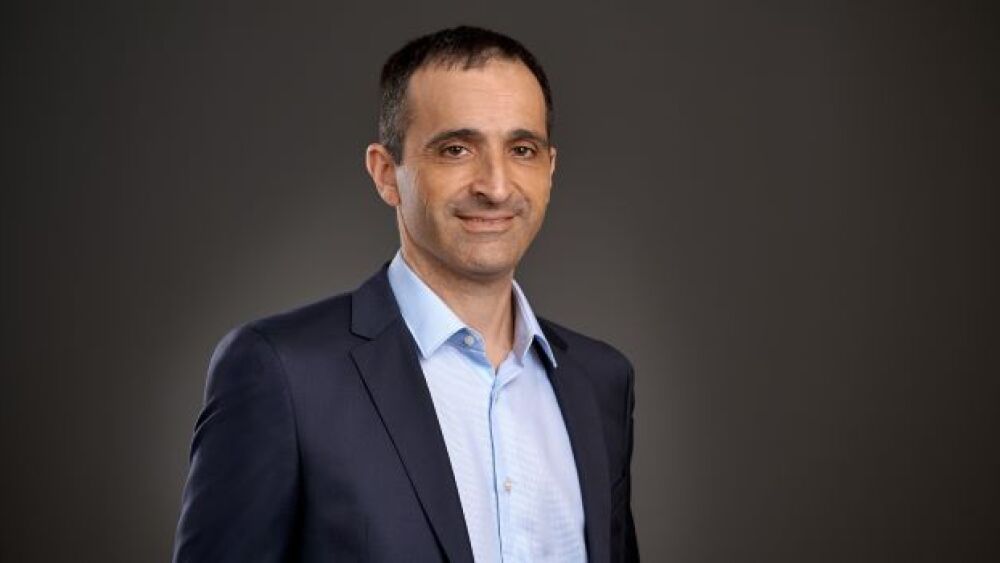Biolojic Design announced that the first-ever computationally-designed human antibody will enter the clinic. The company will study AU-007 in solid cancer tumors.
Biolojic Founder and CEO Yanay Ofran/Courtesy of Biolojic Design
Boston-based Biolojic Design announced Tuesday that the first-ever computationally-designed human antibody will enter the clinic. The company will study AU-007 in solid cancer tumors.
The antibody has been transferred to its spinoff, Aulos Bioscience, which is now running clinical trials in Australia. The companies hope to report interim data later this year.
Biolojic’s artificial intelligence (AI) platform leverages computational biology and big data to design epitope-specific antibodies. The idea is to develop antibodies that have a specific, predetermined effect on the target protein.
In the case of AU-007, the target is interleukin-2 (IL-2). The IL-2 pathway activates the immune system to attack tumors. However, it can also inhibit the attack. There are also some adverse side effects, such as leakage from blood vessels, resulting in life-threatening pulmonary edema. The company programmed AU-007 to attack cancer cells while also preventing IL-2’s ability to inhibit the immune system, while minimizing toxicities such as pulmonary edema.
“The goal behind the design of AU-007 was to harness the power of the body’s own interleukin-2 (IL-2) to eradicate solid cancer tumors,” Biolojic Founder and CEO Yanay Ofran told BioSpace. “Here is the challenge with IL-2: Existing IL-2-based treatments give patients engineered or modified IL-2 that activate the immune system against the tumor and cannot inhibit it. However, once activated, the immune system starts making more IL-2 that is natural and unmodified. Inevitably, this new IL-2 starts inhibiting the immune activity, undermining the efficacy of these drugs and leading to toxicity.”
Ofran went on to describe the three main capabilities Biolojic wanted the antibody to have: very high affinity to IL-2 “so that it can grab the tiny amounts of endogenous IL-2, extend its half-life and let its concentration build up.”
Secondly, they needed to “agonize natural IL-2” in relation to immune effects cells so the endogenous IL-2 attacks the cancer cells. And third, Ofran said, they needed to “antagonize natural IL-2 in the context of Regulatory T cells (Tregs), blood vessels and lung endothelium, so that the endogenous IL-2 cannot inhibit the immune system or cause its notorious toxicity of blood vessel leakage and pulmonary edema.” He added that as with all antibody therapeutics, Biolojic also needed the antibody to be well-expressed, developable, non-immunogenic, have a good PK and not cross-react with other tissues.
The AI platform is designed to mimic the human immune system. It is being developed by Aulos Biosciences, a spinoff by Biolojic and Apple Tree Partners (ATP), a venture capital firm, via a $40 million Series A financing.
Preclinical data recently presented by Aulos at a conference demonstrated significant inhibition of tumor growth, including the total elimination of tumor in 10 of 19 mice receiving AU-007 when receiving it with a PD-1 or PD-L1 checkpoint inhibitors in a murine cancer model.
“These preclinical data strongly support AU-007’s unique mechanism of action as an antibody that can promote anti-cancer activity, including complete tumor elimination when used with checkpoint inhibitors in a murine model of cancer,” said Aron Knickerbocker, Aulos’ chief executive officer. “AU-007’s ability to redirect IL-2 toward immune activation and away from immune suppression and vascular endothelium is a novel approach to long-standing obstacles in immunotherapy.”
The company also has partnerships with Nektar Therapeutics for antibodies for autoimmune diseases and Eli Lilly for antibodies against diabetes. Its own preclinical portfolio includes a dual specific antibody targeting IL-13 and TSLP, a conditional agonist/antagonist targeting IL-2 for autoimmune diseases, super engagers for immuno-oncology, and molecular exchanges, which are IgG antibodies engineered to bind small molecules and release them under specific conditions in oncology.
“Ultimately our approach is highly differentiated because our computationally designed antibodies do what no other antibody can do,” said Micah Pearlman, Biolojic’s chief operating officer. “This allows us to create highly innovative and differentiated therapeutics while focusing on validated targets. Furthermore, we have a world-class team of advisors, biologists, immunologists, computational scientists and software engineers who are already executing several ambitious early-stage programs in the near future, as we strengthen our AI platform to address the vast opportunity of treating multiple diseases with smart therapeutics.”





